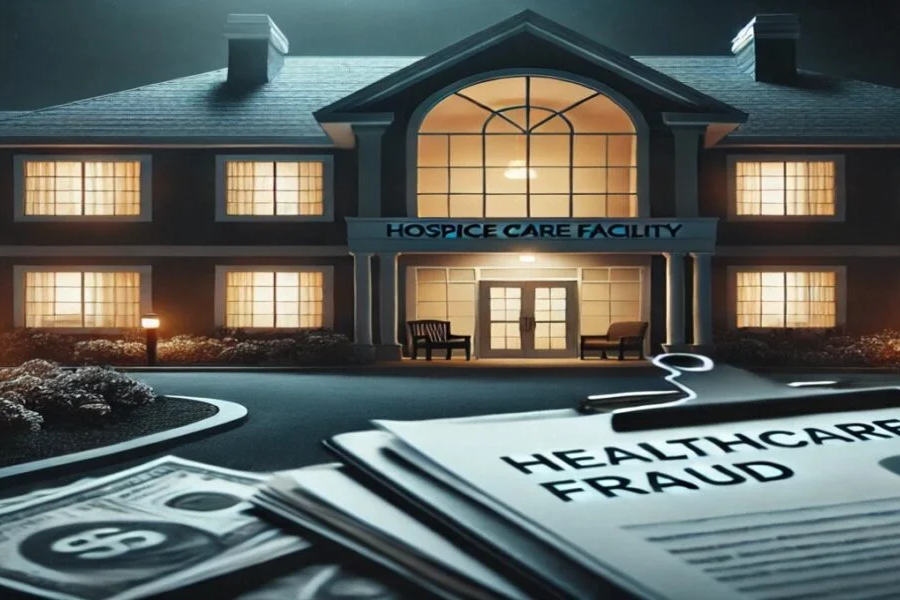Zola Hospice Fraud: Uncovering the Truth
Hospice care is designed to offer comfort and support to patients nearing the end of their lives. However, the Zola Hospice Fraud case has revealed a darker side to this compassionate service. This case serves as a critical reminder of the need to maintain integrity and vigilance in the healthcare sector.
Understanding the details of this scandal is essential for patients, families, and healthcare professionals to prevent such malpractices from tarnishing the noble purpose of hospice care.
What Is Hospice Care?
Meaning and Objective
Hospice care focuses on enhancing the quality of life for terminally ill patients by alleviating pain and providing emotional and spiritual support. It prioritizes comfort over curative treatment, ensuring patients experience dignity and peace in their final days.
Advantages of Hospice Care
Hospice care provides comprehensive assistance to families, including counseling, pain management, and respite care. These services aim to make the final phase of life as comfortable and respectful as possible for both patients and their loved ones.
The Rise of Hospice Fraud
Historical Background
Hospice fraud is not a new phenomenon. Over the years, unethical healthcare providers have exploited the system for financial gain. Common fraudulent practices include enrolling patients who do not meet hospice eligibility criteria or billing for services never rendered.
The Zola Hospice Fraud Case
Services Provided by Zola Hospice
Zola Hospice claimed to offer a range of services, including pain management, emotional support, and spiritual care, catering to the needs of terminally ill patients and their families. However, the organization’s practices soon came under scrutiny.
Investigating and Determining the Fraud
Initial Suspicions
The investigation into Zola Hospice began with reports from former employees and discrepancies in billing records. These red flags prompted federal and state authorities to launch a detailed probe into the organization’s activities.
The Role of Whistleblowers
Whistleblowers played a crucial role in exposing the fraud. Employees who witnessed unethical behavior within Zola Hospice provided valuable evidence, triggering an official investigation and ultimately revealing the extent of the malpractice.
Techniques Used in the Fraud
Manipulating Patient Documentation
Zola Hospice was found guilty of falsifying patient records. They enrolled individuals who were not terminally ill and exaggerated the severity of patients’ conditions to qualify them for hospice care.
Billing for Unnecessary Services
The organization fraudulently billed Medicare and Medicaid for treatments that were either unnecessary or not provided. This deceitful practice significantly inflated their profits at the expense of taxpayers and public healthcare resources.
Exploiting Vulnerable Patients
Zola Hospice targeted vulnerable individuals, enrolling them without proper diagnosis or informed consent. This not only defrauded the system but also deprived patients of essential and appropriate care.
Impact on Patients and Families
Emotional and Financial Consequences
The fraudulent activities of Zola Hospice left families emotionally devastated and financially strained. Trust in the healthcare system was shattered, and many families struggled with the aftermath of inadequate or unnecessary care.
Stories of Affected Families
Several families came forward to share heart-wrenching accounts of how their loved ones suffered due to Zola Hospice’s unethical practices. These testimonies highlighted the profound human cost of the fraud.
Legal Proceedings and Consequences
Charges Filed Against Zola Hospice
Authorities charged Zola Hospice and its executives with fraud, conspiracy, and making false statements. The charges were backed by extensive evidence gathered during the investigation.
Court Proceedings and Verdicts
Court hearings included testimony from former employees, affected families, and expert witnesses. The verdicts underscored the severity of the fraud and its impact on the community.
Punishments and Sentencing
Zola Hospice and its officials faced significant penalties, including hefty fines and prison sentences for those directly involved in the fraudulent schemes. These measures aimed to deliver justice and deter future misconduct.
Government Action and Regulation
New Guidelines and Directives
In response to the Zola Hospice case, authorities introduced stricter regulations for hospice care providers. These measures aim to enhance oversight and prevent similar cases of fraud.
Medicare and Medicaid’s Roles
Medicare and Medicaid intensified their scrutiny of hospice providers, implementing rigorous audits and compliance checks to ensure proper use of funds.
Enhanced Monitoring and Assessments
Government agencies adopted advanced monitoring tools, such as data analytics, to detect and deter fraudulent practices more effectively.
Preventing Hospice Fraud
Steps Healthcare Providers Can Take
Healthcare providers can combat fraud by establishing robust compliance systems, conducting regular audits, and fostering a culture of transparency and accountability.
Importance of Integrity and Transparency
Ethics and transparency are fundamental in healthcare. Providers must prioritize patient needs over financial gains and adhere to ethical and regulatory standards.
Role of Technology in Prevention
Technology can play a significant role in preventing fraud. Predictive analytics, electronic health records, and automated billing systems can help identify anomalies and deter unethical practices.
The Role of Whistleblowers
Importance of Informants in Healthcare
Whistleblowers are vital in uncovering fraud and preserving the integrity of healthcare services. Their courage to report unethical behavior ensures accountability within the system.
Rewards and Protections for Whistleblowers
Legislation provides safeguards for whistleblowers, including protection from retaliation and financial rewards for information leading to successful prosecutions. These incentives encourage more individuals to come forward.
Educating Patients and Families
Raising Awareness
Educating patients and families about hospice care and potential fraud is crucial. Informed individuals are better equipped to recognize warning signs and make sound decisions.
Resources for Reporting Fraud
Numerous resources are available for reporting suspected fraud, including hotlines, websites, and patient advocacy groups dedicated to promoting healthcare integrity.
Lessons Learned
Key Takeaways from the Zola Hospice Case
The Zola Hospice Fraud case underscores the importance of vigilance, ethical practices, and robust oversight in healthcare. It highlights the need for stringent regulations and the critical role of whistleblowers in maintaining accountability.
Broader Implications for Healthcare
This case has prompted a renewed focus on patient protection, fraud prevention, and the responsible allocation of healthcare resources, reinforcing trust in the system.
Conclusion
The Zola Hospice Fraud case is a stark reminder of the potential for exploitation in the healthcare system. By learning from this incident, stakeholders can work together to ensure that hospice care continues to provide dignity and comfort to those in their final days without falling prey to fraudulent practices.
FAQs
What does hospice fraud entail?
Hospice fraud involves unethical actions by hospice care providers, such as enrolling ineligible patients, billing for unnecessary services, and falsifying patient records.
How do I report possible fraud at a hospice?
You can report suspected hospice fraud through the Medicare Fraud Hotline, the Office of Inspector General (OIG) Hotline, or your state health agency. Many organizations offer options for anonymous reporting.
Stay connected with the latest news and stories from London at london daily.






